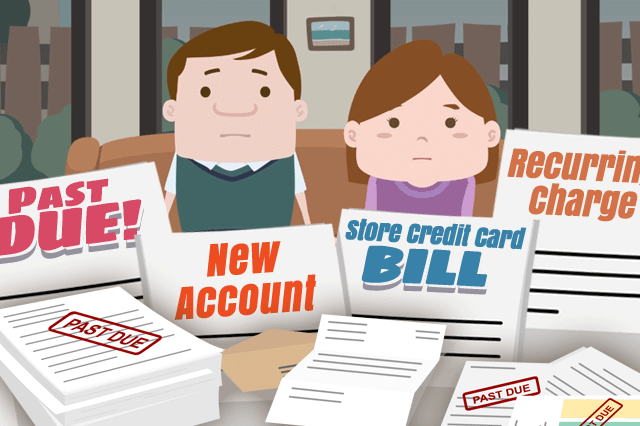Pay Attention to Your Debt-To-Income Ratio

But planning ahead is key and you will need to examine and work on the amount of debt you carry to make yourself a better credit risk in the eyes of your lender.
Take some time to review your last 12 months of credit, at a minimum. Use the same amount of time to look at your loan repayment history and make sure you haven’t missed or had any late payments in the last year.
Credit use and credit scores are very important, but your debt to income ratio or DTI for short is one of the most important factors in the lender's decision to approve or deny a home loan. DTI can be just as weighty as a credit score when it comes time to approve your home loan application.
The debt to income ratio is a calculation your lender is required to make by taking your verifiable income compared to your total monthly financial obligations. The debt-to-income ratio is calculated with and without your proposed mortgage payment-doing so is required by FHA loan rules to make sure a potential borrower can afford the new FHA mortgage loan payments.
"The Mortgagee must review all credit report inquiries to ensure that all debts, including any new debt payments resulting from material inquiries listed on the credit report, are used to calculate the debt ratios. The Mortgagee must also determine that any recent debts were not incurred to obtain any part of the Borrower’s required funds to close on the Property being purchased."
That is found in the FHA Lenders Handbook, HUD 4000.1. The phrase "material inquiries" mentioned above is defined in HUD 40001. as follows:
"Material Inquiries refer to inquires which may potentially result in obligations incurred by the Borrower for other Mortgages, auto loans, leases, or other Installment Loans. Inquiries from department stores, credit bureaus, and insurance companies are not considered material inquiries."
Some wonder how a participating FHA loan officer acquires this debt information; HUD 4000.1 explains, "The Mortgagee must determine the Borrower’s monthly liabilities by reviewing all debts listed on the credit report, Uniform Residential Loan Application (URLA), and required documentation.”
Potential FHA borrowers should keep this in mind when considering new lines of credit in the 12 months or so leading up to a home loan application. It’s best not to apply for new credit during this time and to work on reducing unnecessary lines of credit. Those applying for a construction loan must be especially careful as some One-Time-Close lenders may have higher FICO score requirements as a condition of home loan approval.
 FHA, VA, and USDA: One-Time Close Loans
FHA, VA, and USDA: One-Time Close Loans Want More Information About One-Time Close Loans?
Want More Information About One-Time Close Loans?We have done extensive research on the FHA (Federal Housing Administration), the VA (Department of Veterans Affairs) and the USDA (United States Department of Agriculture) One-Time Close Construction loan programs. We have spoken directly to licensed lenders that originate these residential loan types in most states and each company has supplied us the guidelines for their products. We can connect you with mortgage loan officers who work for lenders that know the product well and have consistently provided quality service. If you are interested in being contacted by a licensed lender in your area, please send responses to the questions below. All information is treated confidentially.
FHA.com provides information and connects consumers to qualified One-Time Close lenders in an effort to raise awareness about this loan product and to help consumers receive higher quality service. We are not paid for endorsing or recommending the lenders or loan originators and do not otherwise benefit from doing so. Consumers should shop for mortgage services and compare their options before agreeing to proceed.
Please note that investor guidelines for the FHA, VA, and USDA One-Time Close Construction Program only allow
Your email to [email protected] authorizes FHA.com to share your personal information with a mortgage lender licensed in your area to contact you.
- Send your first and last name, e-mail address, and contact telephone number.
- Tell us the city and state of the proposed property.
- Tell us your and/or the Co-borrower’s credit profile: Excellent – (680+), Good - (640-679), Fair – (620-639) or Poor- (Below 620). 620 is the minimum qualifying credit score for this product.
- Are you or your spouse (Co-borrower) eligible veterans? If either of you are eligible veterans, down payments as low as $0 may be available up to the maximum amount your debt-to-income ratio per VA will allow – there are no maximum loan amounts as per VA guidelines. Most lenders will go up to $750,000 and review higher loan amounts on a case by case basis. If not, the FHA down payment is 3.5% up to the maximum FHA lending limit for your county.

Do you know what's on your credit report?
Learn what your score means.







